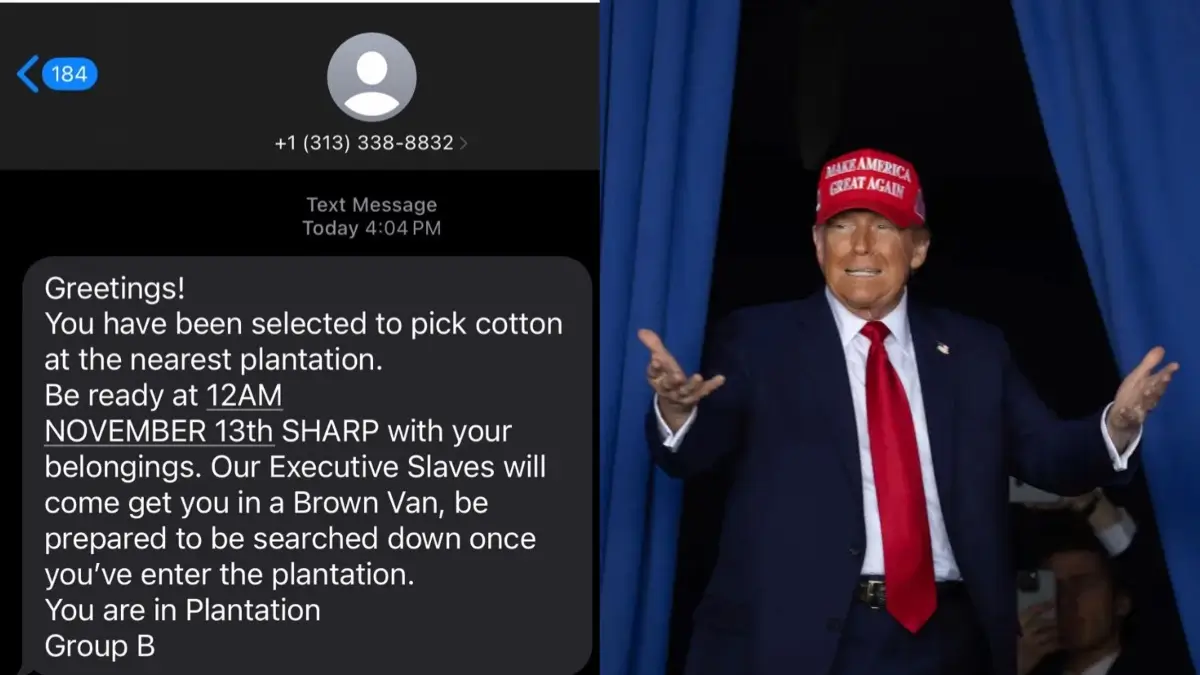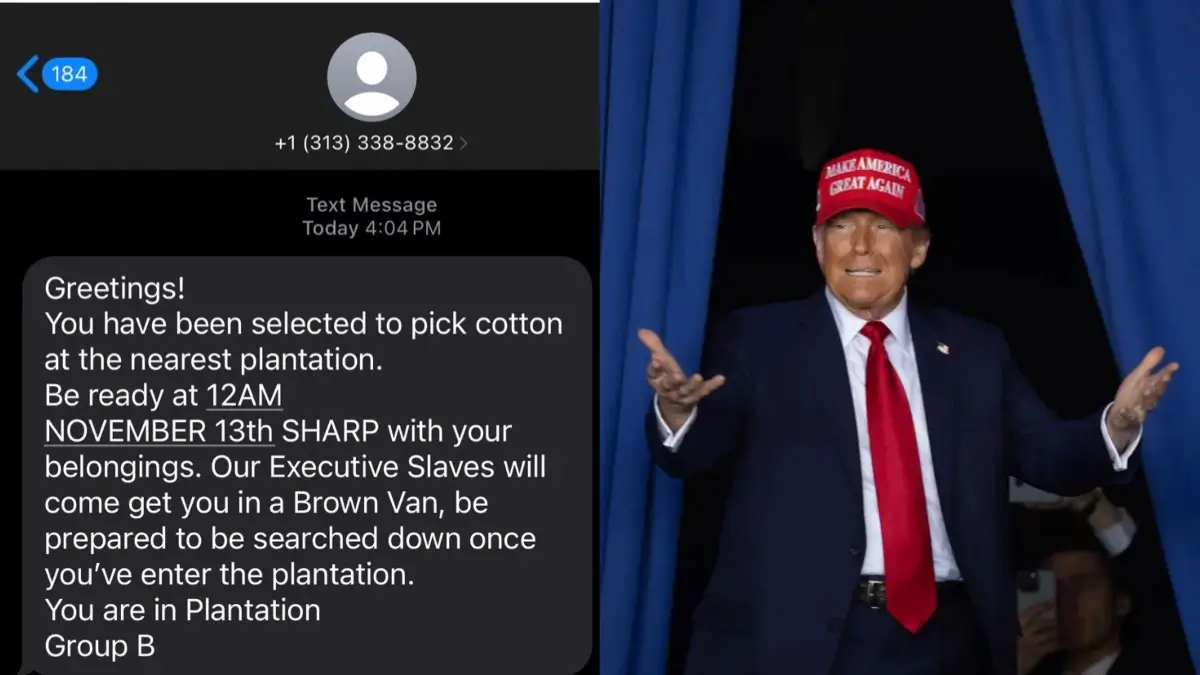‘We’re Not Intimidated No More!’: North Carolina Plantation Descendants Will Not ‘Cower’ to ‘Disrespectful’ Mass Texts About Slavery After Donald Trump’s Election
The descendants of one of the largest plantations in North Carolina condemned the mass texts sent to Black Americans nationwide, telling them they’ve been “selected to pick cotton” a day after Donald Trump was re-elected as president.
Black people across the country were sent the same text with slight variations telling them they’d been “selected to pick cotton at the nearest plantation.”
The scores of texts told recipients that “executive slaves” would arrive in a “brown van” to transport them to plantations before telling the victims which “plantation group,” labeled A-Z, they belonged in.

Beverly Evans told ABC11 that “the people that got the messages felt disrespected, and we all, as Black people, felt disrespected by that.”
The 76-year-old recently learned she is the descendant of a family who was once enslaved on the Stagville Plantation in Durham, North Carolina. According to the Stagville website, the plantation belonged to the Bennehan-Cameron family, who enslaved more than 900 people across 30,000 acres of land in the state.
The North Carolina Department of Historic Sites released that some people even received texts mentioning the Stagville Plantation:
“It has come to our attention that some North Carolina residents have received alarming text messages referencing Stagville State Historic Site, a former plantation. North Carolina Historic Sites condemns these acts intended to inspire fear and division by weaponizing history. Stagville is a sacred space for visitors to contend with the history of slavery, emancipation, and injustice. We will work with law enforcement on the investigation into these hateful and deceitful messages.”
Another person whose family was once enslaved on the Stagville Plantation asserted that he wouldn’t be unnerved by messages meant to stoke fear and intimidation.
“We don’t cower down no more. We’re not intimidated no more. Those days are gone,” Ricky Hart said. “They can try intimidation or the fear factor, but that’s not going to work anymore.”
The messages set off a firestorm on social media and were condemned by numerous state and federal elected officials. Authorities strongly urged anyone who received the text to contact their local FBI field offices and state agencies.
Federal agents have launched an investigation and deployed criminal, cyber, and counterintelligence agencies to look into the matter. It is unclear at this point whether the texts originated from the U.S. or overseas.
A spokesperson for the CTIA, the official trade association representing the wireless communications industry in the U.S., told NBC News it has blocked numerous messages and the numbers that sent them. The association urged people to forward the spam texts to number 7726 or “SPAM” to report them to their wireless provider.
Divisive and hateful rhetoric increased during the most recent presidential election cycle. Trump has been deemed by his opponents as a large influence behind that rhetoric, driving concerns that race relations will continue to flounder in the country once he returns to office.
The NAACP released a statement saying that the messages “represent an alarming increase in vile and abhorrent rhetoric from racist groups across the country, who now feel emboldened to spread hate and stoke the flames of fear that many of us are feeling after Tuesday’s election results.”
Brian Hughes, a spokesperson for the Trump campaign, denounced the texts last week, stating, “If we can find the origin of these messages which promote this kind of ugliness in our name we will obviously take legal action to stop it.”

